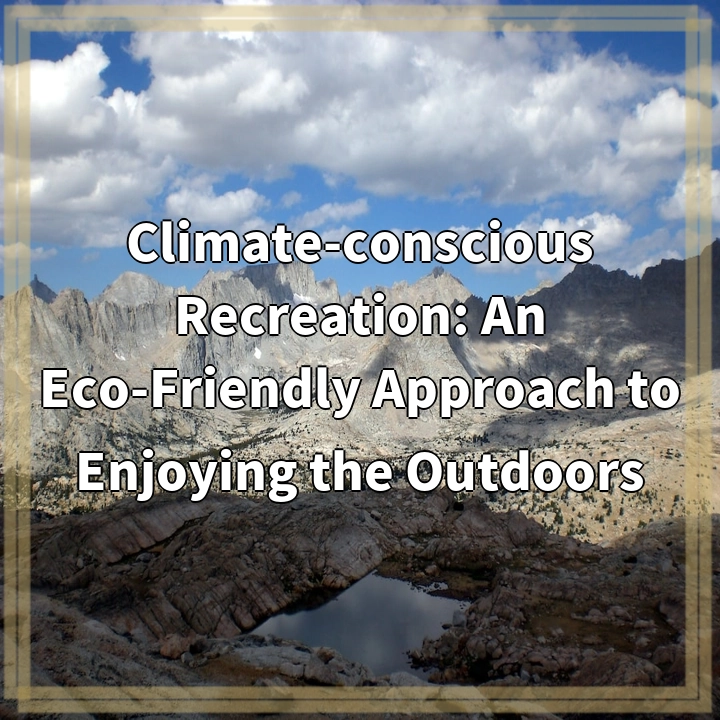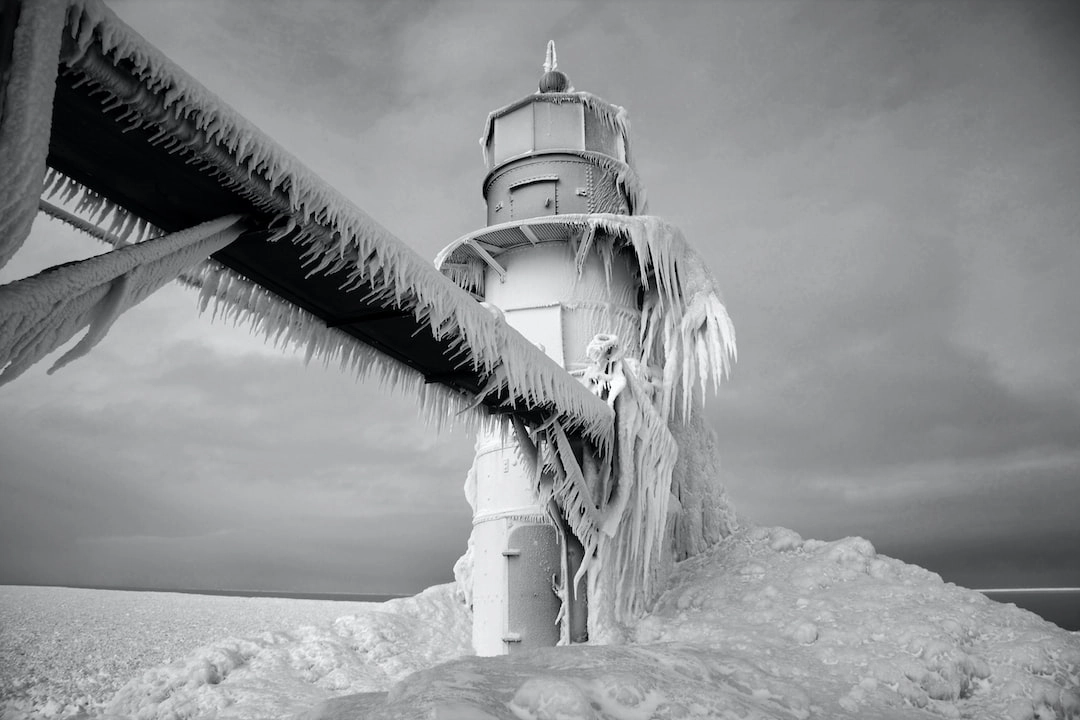
What is Climate-conscious Recreation?
Climate-conscious recreation is an approach to enjoying outdoor activities with a focus on minimizing one’s environmental impact. It involves making conscious choices and adopting sustainable practices while engaging in recreational activities such as hiking, camping, and wildlife watching.
Real-world Problems Associated with Climate-conscious Recreation
Despite the growing awareness of the importance of environmental conservation, there are still challenges and obstacles that arise when trying to practice climate-conscious recreation:
Limited Accessibility to Sustainable Gear
One of the barriers to climate-conscious recreation is the limited availability and accessibility of sustainable gear and equipment. Many outdoor enthusiasts struggle to find eco-friendly alternatives to traditional gear, such as environmentally friendly camping gear, solar chargers, and sustainable clothing options.
Transportation Emissions
Transportation is a significant contributor to greenhouse gas emissions, and it poses a challenge to climate-conscious recreation. Many outdoor activities require traveling long distances, and choosing sustainable transportation options like public transportation or carpooling can be difficult in remote locations with limited accessibility.
Waste Management
Another challenge in climate-conscious recreation is managing waste appropriately. Improper disposal of garbage and litter can harm ecosystems, wildlife, and water sources. Finding proper waste disposal facilities, particularly in lesser-known natural areas, can be a challenge, leading to litter accumulation and environmental degradation.
Impact on Fragile Ecosystems
Some recreational activities, if not conducted responsibly, can have a detrimental impact on fragile ecosystems. Activities such as off-road driving, illegal logging, or trampling sensitive habitats can lead to habitat destruction, soil erosion, and disturbance to wildlife populations.
Lack of Environmental Education
A lack of environmental education and awareness can also contribute to the challenges of climate-conscious recreation. Many outdoor enthusiasts may not be aware of the potential environmental impacts of their activities or the importance of adopting sustainable practices. This lack of awareness can perpetuate unsustainable behaviors and practices.
By addressing these real-world problems and finding solutions, we can ensure that our enjoyment of the outdoors is sustainable and environmentally responsible. In the forthcoming sections, we will delve deeper into each of these issues and explore strategies and solutions for climate-conscious recreation.

Solutions for Climate-conscious Recreation
Addressing the challenges associated with climate-conscious recreation requires proactive solutions and a commitment to sustainability. Here are some strategies and actions that can help mitigate the real-world problems:
Sustainable Gear Options
Exploring and investing in sustainable gear options is essential for minimizing the environmental impact of recreational activities. Look for eco-friendly camping gear made from recycled materials, opt for energy-efficient and portable solar chargers, and choose clothing and footwear made from sustainable and organic materials.
Promoting Sustainable Transportation
Encouraging sustainable transportation options allows outdoor enthusiasts to reduce their carbon footprint. Organizing group trips to encourage carpooling, promoting the use of public transportation or electric vehicles, and highlighting accessible outdoor locations can all contribute to minimizing transportation emissions.
Practicing Leave No Trace Principles
Following Leave No Trace principles is crucial for proper waste management during outdoor activities. Pack out all waste, separate recyclables when possible, and dispose of garbage in designated facilities. Educate yourself on local waste management guidelines and teach others about the importance of responsible waste disposal.
Responsible Outdoor Ethics
Embracing responsible outdoor ethics can help protect fragile ecosystems. Stay on designated paths and trails, avoid damaging vegetation, and respect wildlife by observing from a distance. Participate in organized conservation efforts and support local conservation organizations to actively contribute to the preservation of natural areas.
Environmental Education and Awareness
Increasing environmental education and awareness is key to encouraging sustainable behavior in outdoor recreation. Promote and participate in educational programs, workshops, and events that highlight the importance of climate-conscious practices. Share information through blogs, social media, and community engagement to inspire others to practice climate-conscious recreation.
By implementing these solutions, we can make a positive impact and ensure that our love for the outdoors is sustainable and environmentally responsible. Let’s strive for a future where climate-conscious recreation becomes the norm, benefiting the environment and future generations.















